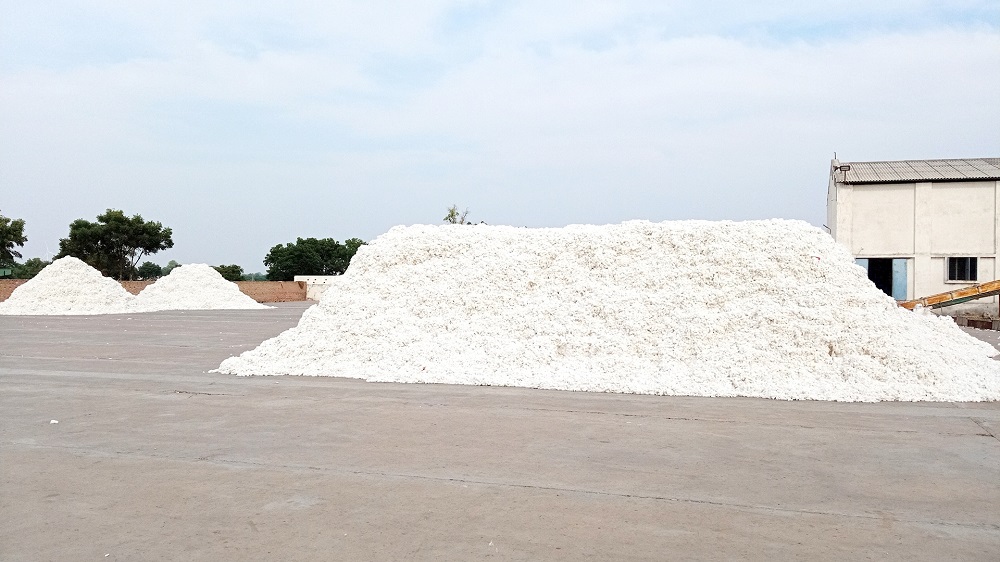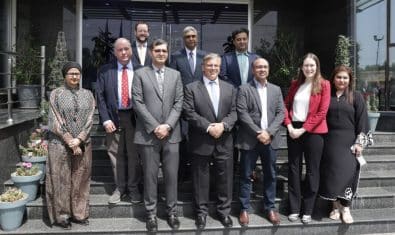Last week, the Commerce Ministry and Federal Board of Revenue (FBR) jointly decided to implement the track and trace system at cotton ginning factories.
According to well-informed industry sources, more than a million bales worth billions of rupees are traded every year without invoices between ginning and spinning and this year 2 to 3 lac bales have been traded.
It should be noted that the market value of 100 bales is more than Rs. 8.5 million inclusive of 18 percent GST. Though there is no way to verify these numbers but it’s so open and normal in the market that everyone knows about it, a source said.
Last month, the FBR uncovered a scam worth Rs. 53 billion, involving 8,000 taxpayers who evaded taxes through adjustments related to cotton ginning. This incident highlights the inadequate internal controls of the FBR. Interestingly, the same cotton is subsequently sold as yarn in various yarn markets across the country without proper invoices, indicating that the issue extends beyond the ginning sector.
“We welcome the initiative as it has been a problem for us as well but the implementation should follow across the supply chain since all the cotton sold with or without invoices is essentially being utilized by the textile sector”, stated Chuhdhary Waheed Arshad, Chairman of Pakistan Cotton Ginners Association while talking to ProPakistani.
He added that the issue has come to the limelight due to the sales tax on cottonseed, as its tax is higher than that of cotton, ultimately disrupting the entire value chain’s documentation. He also mentioned that ginners would indeed feel more secure with the implementation, but the system should also be extended to other sub-sectors.
Commenting on the aforementioned numbers, he said that it’s nearly impossible to verify any of this, and the numbers of undocumented trade are also elevated sometimes when the production targets set by some stakeholders are not achieved.
Traceability is Not Optional Anymore
Traceability means the ability to track the whereabouts and utilization of products and materials to ensure the reliability of sustainability claims regarding human rights, labour practices and environmental standards. The textile sector has long been criticized for child labour practices and the disposal of chemical waste in the environment.
The 2022 Pakistan Cotton Supply Chain Mapping Report for the Bureau of International Labour Affairs (ILAB) and the US Department of Labour notes that in ginning factories, children handle cotton received by ginning units, clean and prepare it for the ginning process and handle the cotton bales produced at the end of the process. Children may work without protective clothing or in areas where white cotton dust contamination is found.
In textile manufacturing, children may work in large formal factories or small informal factories, as well as in subcontracted workshops and their own homes. Smaller factories have been found to employ children to avoid paying minimum wage and overtime.
“Pakistan does not have a forced or child labour problem, and we have always welcomed international organizations to visit our farms and factories so we can bust the myths that have been told about our country”, added Arshad.
Compliance with traceability standards can make Pakistani products more competitive in the international market as companies and brands will be able to validate their green claims through traceability data.
On the other hand, Pakistan’s textile products have become entirely uncompetitive due to the energy crisis and the resulting IMF conditions that discourage subsidies. These conditions are expected to have a lasting impact on the industry in the coming years. Amidst these challenges, traceability is no longer optional; it has evolved into a key factor for the industry’s survival. By incorporating more organic cotton and adopting sustainable practices, Pakistan might be able to compete with regional players.






















